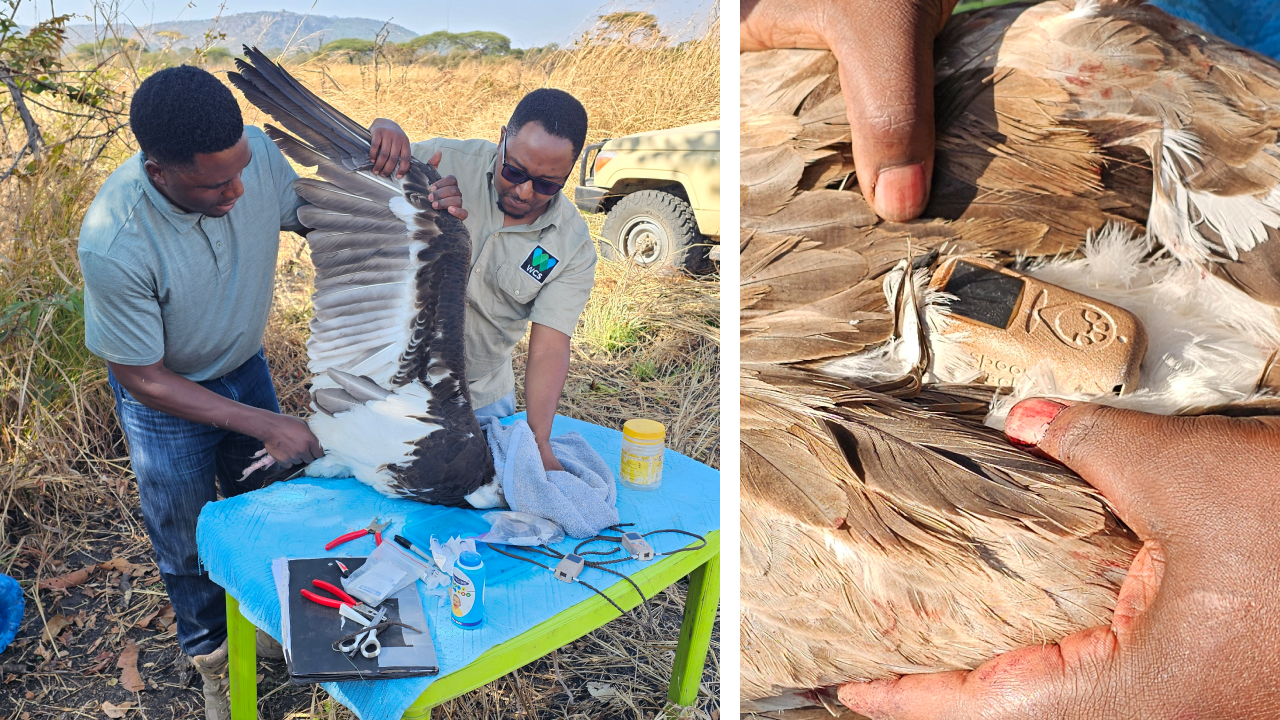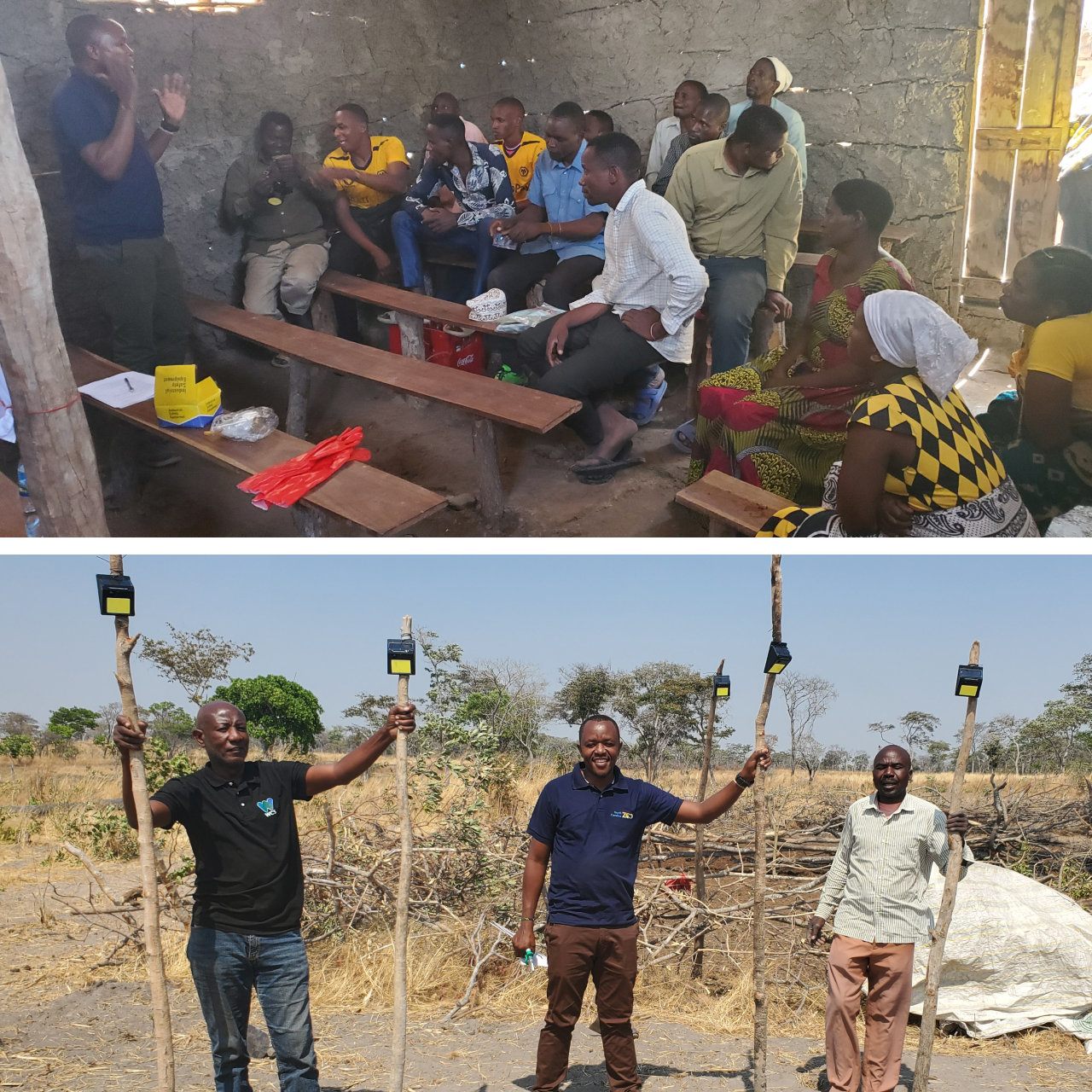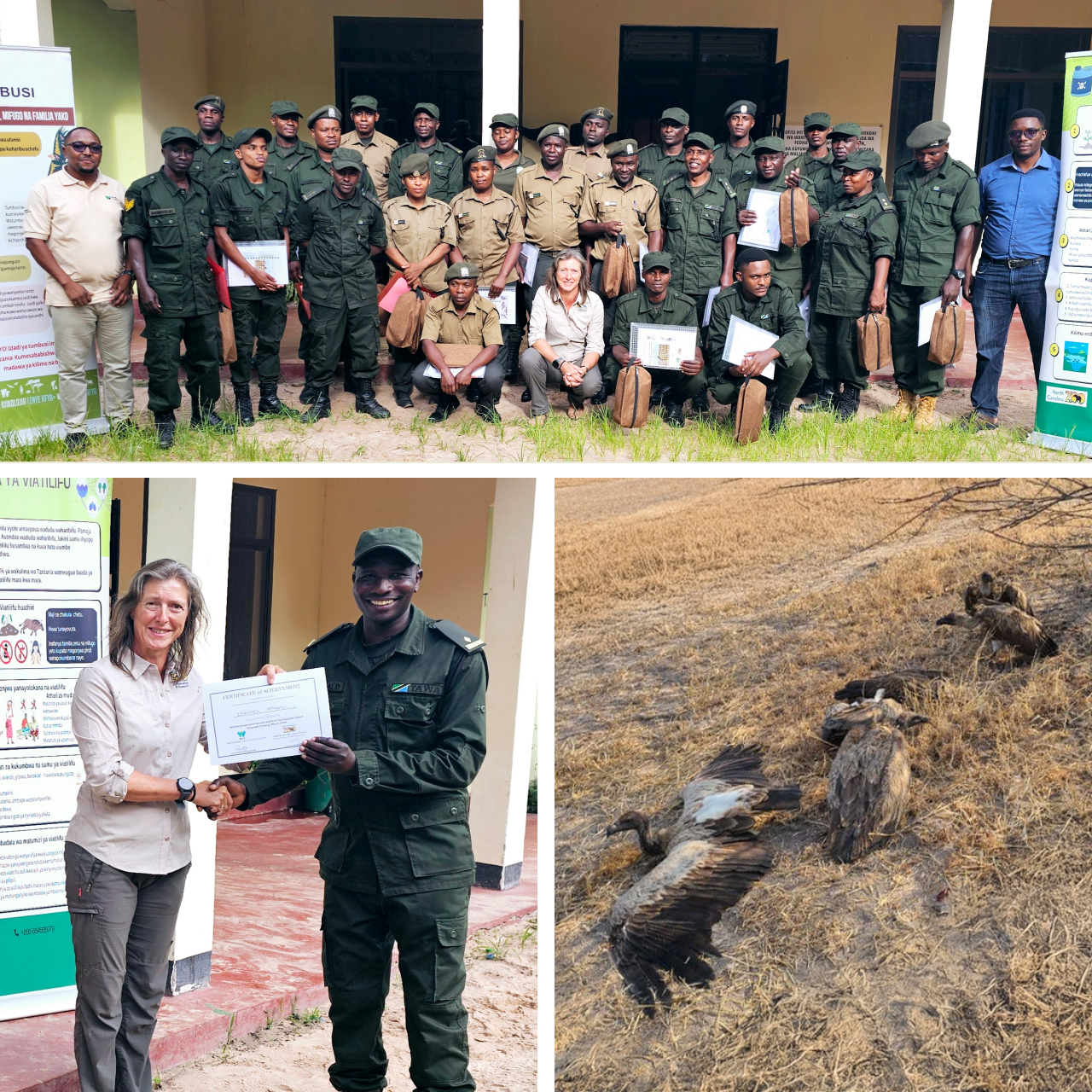
Stanley Mbilinyi
Protecting Tanzania’s Vultures From Poisoning
Tanzania is home to eight species of vultures, six of which are listed as Critically Endangered or Endangered. These remarkable scavengers play a vital role in maintaining healthy ecosystems, yet their survival is under urgent threat.
The greatest danger comes from poisoning. In some cases, poachers deliberately target vultures, harvesting body parts for belief-based practices. Vultures can also become unintended victims when carcasses are laced with poison to kill predators such as lions or hyenas. The scale of these events is devastating—a single poisoning can wipe out more than 100 vultures.
To confront these declines, a comprehensive Ten-Year Conservation and Management Plan for Vultures in Tanzania has just been released by the United Republic of Tanzania’s Ministry of Natural Resources and Tourism. The Peregrine Fund’s Dr. Corinne Kendall, Southern Africa Program Director, and Dr. Claire Bracebridge, Tanzania Program Manager, were instrumental in shaping this plan, which lays out the urgent management actions needed to halt and reverse vulture declines.
Our Tanzania Program has already made significant strides in tackling the threat of poisoning. By fitting vultures with GPS transmitters (pictured above), our team can track their movements and quickly detect unusual patterns that may signal poisoning events. In the past three months alone, 12 additional tags were deployed in under-studied regions, filling crucial data gaps.
This technology recently revealed a poisoning hotspot linked to retaliatory killings after hyenas preyed on livestock. Armed with this knowledge, our team worked directly with farmers and herders, raising awareness about the dangers of using poisons, promoting safe alternatives for crop protection, and distributing motion-activated predator-deterrent lights (pictured in bottom photo below). These practical solutions are already reducing conflict between people and wildlife.
Responding swiftly when poisonings occur is just as important as preventing them. To date, over 425 rangers in Tanzania have been trained by our team to recognize and address poisoning incidents. Recently, Tanzanian National Parks rangers trained by our staff responded to a poisoning at a watering hole. Thanks to their quick action, the site was cleaned, evidence was collected for investigation, and 15 poisoned vultures received life-saving treatment.
Protecting Tanzania’s vultures requires a coordinated effort that combines monitoring, rapid response, community engagement, and strong partnerships with government and local stakeholders. With the new national action plan and ongoing on-the-ground efforts, there is hope that vulture declines can be stopped.








